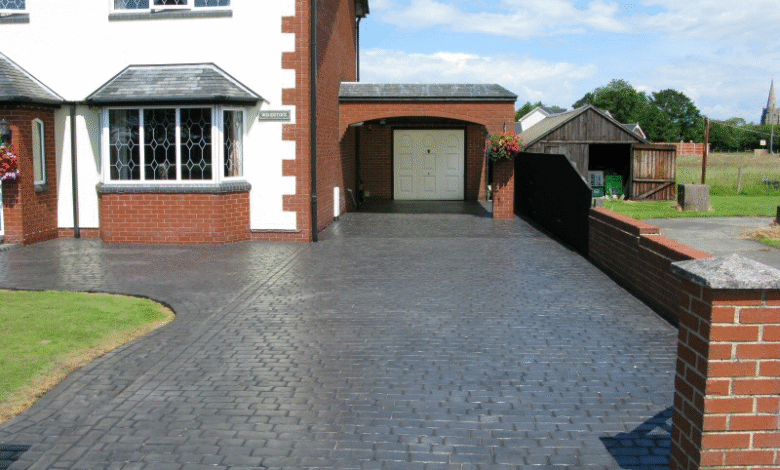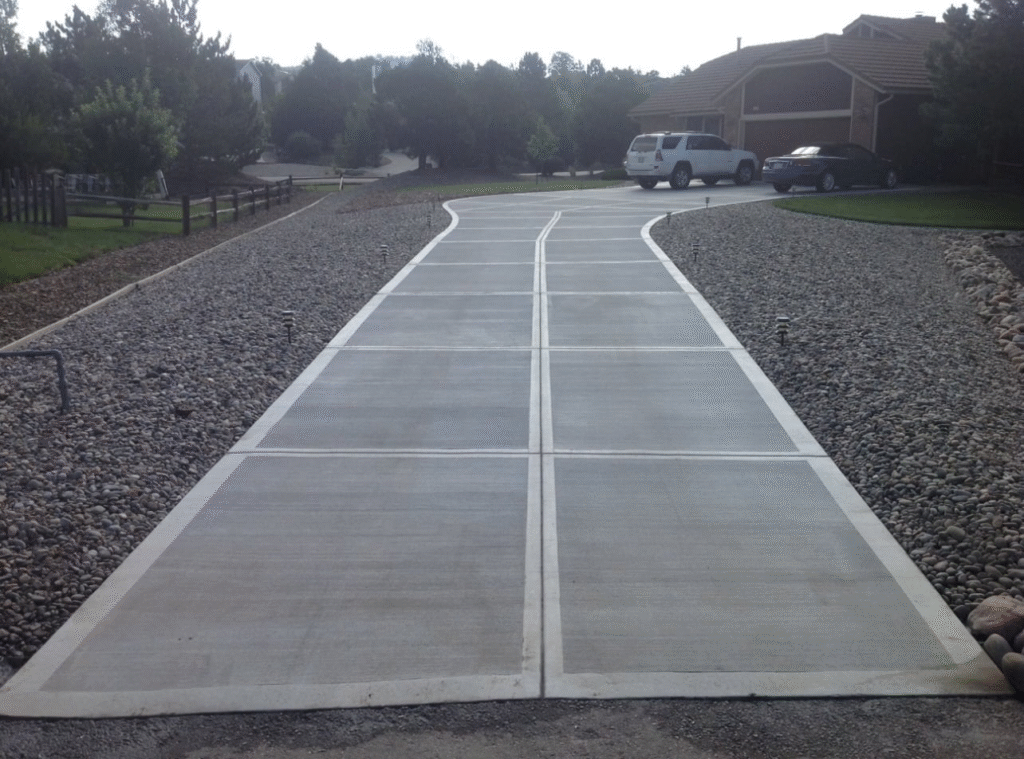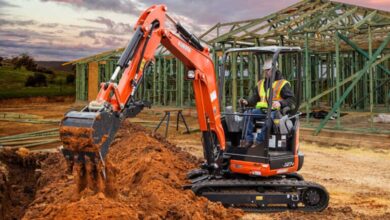Which Materials Offer the Best Durability for Driveways?

Adding a driveway to your home is a smart way to improve both its look and function. It provides safe, clean parking and helps keep dirt and mud away from your entrance. Moreover, it also increases your home’s value and makes it more appealing to buyers. However, the selection of the right material is crucial to build a driveway that is both stylish and durable.
With so many material options available, it can be hard to choose the right one. Each material has its own strengths and is not suitable for all types of driveways. Therefore, learning about different types of materials and their key features is crucial to make the right selection and ensure the longevity of your driveway.
Best driveway materials
Concrete
Concrete is one of the most common and durable materials used for driveways and patios. It is made by mixing cement, sand, gravel, and water. Once poured and set, it forms a solid surface that can last for many years with little upkeep. Its strength makes it ideal for areas with heavy vehicles or foot traffic. For example, many homeowners choose concrete Exeter because it provides a smooth, clean finish and can be shaped or coloured to suit different property styles.
Block Paving
Block paving is made of individual bricks or blocks, usually formed from concrete or clay. These are laid in patterns over a strong base. One of its key features is flexibility; if one block gets damaged, it can be replaced without touching the rest. It is not only strong but also looks attractive, and suits most homes with creative designs. Moreover, it can handle movement and pressure well, which helps prevent cracking, making it a popular choice for homeowners across the UK.
Tarmac
Tarmac, also known as tarmacadam, is made by mixing crushed stone with tar or bitumen. It’s often used for roads but also works well for driveways. It provides a smooth, black surface that sets quickly and is good at handling heavy loads. Though it is not as decorative as other materials, it’s very strong and low-maintenance. The best thing is that it is one of the more affordable options and performs well in areas with heavy use or poor weather.
Resin-Bound Gravel
It is a mix of small stones and a clear resin. Once laid, it forms a smooth, solid surface where the stones are firmly held together. This material is known for its neat look and comes in different colours and stone sizes, offering customised solutions. Additionally, it allows water to pass through, helping with drainage. It needs a proper base and professional installation, but it offers a clean, modern surface that lasts a long time.
Gravel
Gravel driveways use loose stones laid over a strong base. It is highly versatile, easy to install, and one of the cheapest materials. Gravel allows water to drain naturally, reducing surface water build-up. However, it can move around and needs regular topping up. It’s best for rural or large properties where a more natural appearance fits best.

Natural Stone
Natural stone includes materials like sandstone, granite, and limestone. These are cut into slabs or blocks and laid over a solid base. It is very strong and can last for decades if installed properly. The main feature is its natural beauty, each stone has a unique colour and texture and works well for traditional driveways. Although it’s more expensive than other materials, it adds value to your home and offers great strength and weather resistance.
Porcelain Paving
Porcelain paving slabs are made from refined clay, fired at high temperatures to make them hard and water-resistant. They have a smooth, modern finish and come in many colours and textures. Porcelain doesn’t absorb water easily, so it’s good in wet weather. It’s scratch-resistant and very easy to clean, offering a strong, stylish, and long-lasting surface with very low maintenance.
Cobblestone
Cobblestones are small, rounded stones, often made from granite or other tough rock. They’ve been used for roads for hundreds of years because of their strength and classic look. Cobblestones are laid on a compact base and held in place with mortar or sand. However, they’re more expensive and less smooth than modern materials. Most people choose them because of their incredible strength; they can take heavy loads and handle all weather types.
Reinforced Concrete
Reinforced concrete is regular concrete with added steel mesh or bars to increase its strength. Most homeowners used it to provide extra load-bearing power on driveways used by large vehicles. It helps stop cracking and adds years to the surface’s life. Many companies in the UK, such as A and M Groundworks, are offering this type of installation at reasonable rates. Hiring them can make your driveway installation process smooth and error-free.
When planning to add a driveway to your home, consider these options to help you make the right choice. They are suitable for both traditional and modern driveways, highly versatile, easy to maintain, and offer incredible durability.



